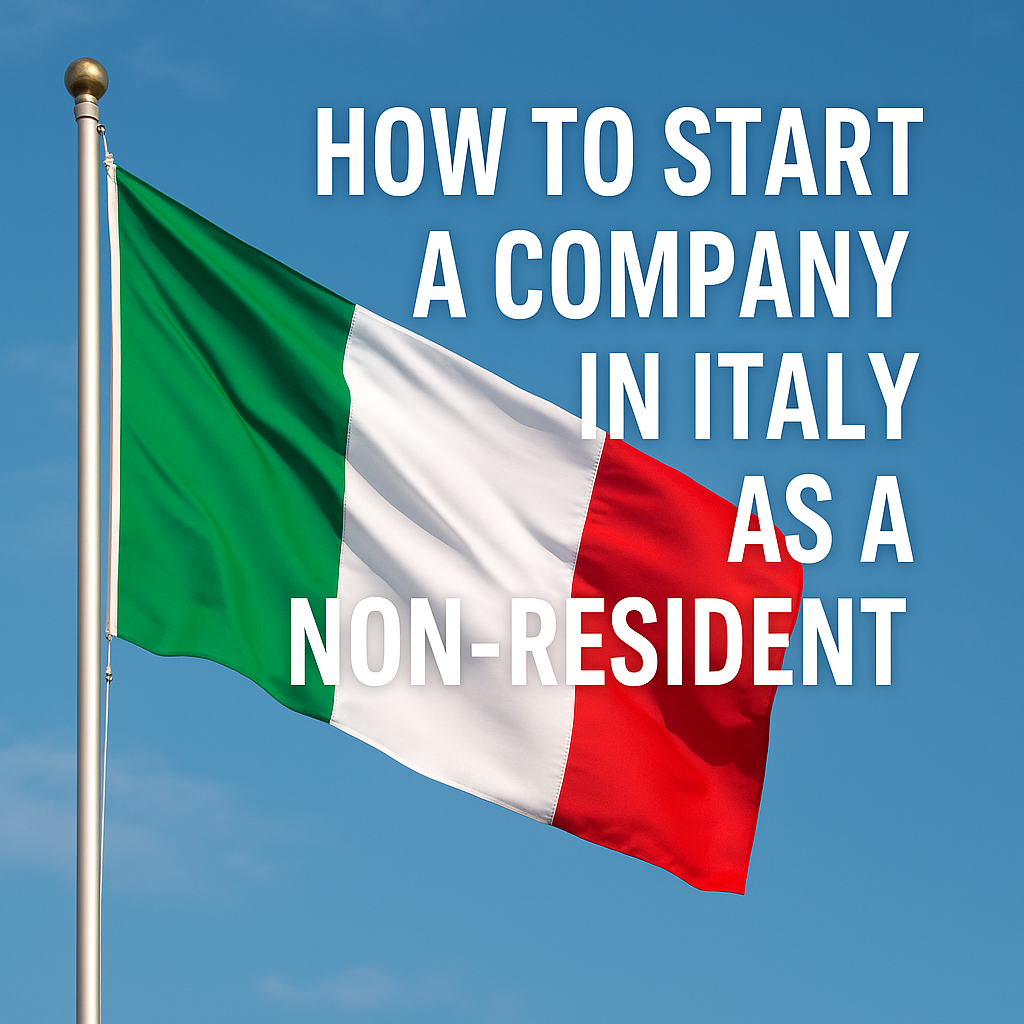
Italy continues to be a strategic hub for international businesses seeking to expand into Europe. With its central location, strong manufacturing base, and access to the EU single market, establishing a presence in Italy can open significant opportunities.
At ItalyStartUp.org, we regularly support entrepreneurs, corporations, and global consultancy firms in navigating the Italian legal and tax framework. Here’s an overview of what non-residents need to know when setting up a business in Italy.
1. Main Business Structures in Italy
Foreign investors can choose from several legal forms, depending on their objectives:
- S.r.l. (Società a Responsabilità Limitata) – Limited Liability Company; the most common and flexible form.
- S.p.A. (Società per Azioni) – Joint Stock Company, usually adopted by larger enterprises.
- Branch Office – Extension of a foreign company, with legal dependence on the parent.
- Representative Office – For non-commercial activities (market research, liaison).
- Sole Proprietorship – Suitable only if the entrepreneur resides in Italy.
2. Can Non-Residents Open a Company in Italy?
Yes. Non-resident individuals and foreign companies are fully eligible. Key requirements include:
- Obtaining a Codice Fiscale (Italian tax code) for shareholders and directors.
- Having a registered office address in Italy.
- For non-EU nationals, additional documentation may apply (visa or residence permits for active management roles).
3. The Company Formation Process
The typical steps for incorporating an Italian company are:
- Apply for tax codes (codice fiscale) for all stakeholders.
- Open a corporate bank account and deposit the share capital.
- Draft and notarize the Articles of Association with an Italian notary.
- Register with the Companies’ Register (Registro delle Imprese).
- Activate a VAT number (Partita IVA).
- Handle post-incorporation compliance (accounting, payroll, tax filings).
Timeframe: approximately 2–4 weeks, depending on documentation and structure.
4. Why ItalyStartUp.org?
Setting up in Italy requires careful coordination between legal, tax, and notarial requirements. At ItalyStartUp.org, we:
- Advise on the most efficient structure for your business.
- Handle incorporation end-to-end.
- Provide ongoing accounting, tax, and legal support to ensure compliance.
- Assist non-residents with obtaining all necessary codes and registrations.
Conclusion
Italy offers international investors a gateway to one of Europe’s largest consumer markets. With the right partner, the process can be smooth and strategically rewarding.
📚 References & Resources
- Invest in Italy – Setting up a company – Official portal on doing business and company formation in Italy.
- Impresainungiorno.gov.it – Setting up a business – Government one-stop shop for business registration.
- Registro delle Imprese (registroimprese.it) – The official Italian Business Register, managed by the Chambers of Commerce.
- Unioncamere – Registro delle Imprese e semplificazione – Institutional body overseeing Italian Chambers of Commerce and business registers.
- Ministero delle Imprese e del Made in Italy (MIMIT) – The ministry responsible for enterprise and business policies in Italy.
- UIBM – Ministero delle Imprese e del Made in Italy – Official office for industrial property, trademarks, and legal filings.
- How to Obtain an Italy Startup Visa – italystartup.org – Article that explain How to Obtain an Italy Startup Visa
Discover more about our R&D consultancy services and request your free initial assessment today!
✉️ info@italystartup.org | 🌐 www.italystartup.org | 📞 +39 349 380 6329